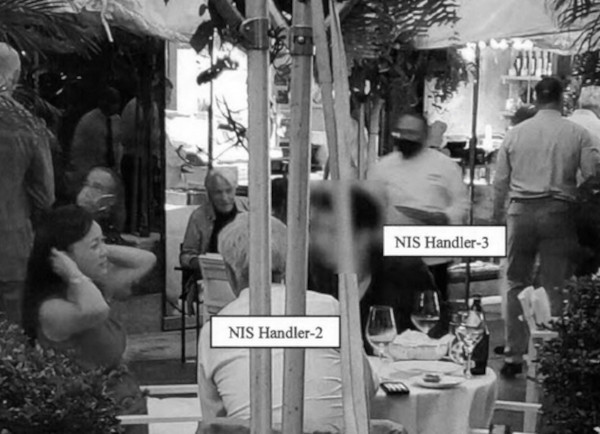Sue Mi Terry: From Korea Expert to FARA Violation Charges
Sue Mi Terry: From Korea Expert to FARA Violation Charges
Introduction
Sue Mi Terry is a Korean-born American political scientist and former government official. Known for her expertise on the Korean Peninsula and East Asian geopolitics, she has worked with the CIA, the Center for Strategic and International Studies (CSIS), the National Intelligence Council (NIC), and the Woodrow Wilson Center. Most recently, she served as a Senior Fellow at the Council on Foreign Relations (CFR). In 2024, Terry was thrust into the spotlight when she was charged by the U.S. government with violating the Foreign Agents Registration Act (FARA), sparking widespread controversy.
Early Life and Career
Born in Seoul, South Korea, in 1972, Sue Mi Terry lost her father to liver cancer at the age of four. At twelve, she immigrated to Hawaii with her mother. Growing up in Virginia, she pursued studies in political science and international relations, earning a bachelor's degree in political science from New York University and a master's and Ph.D. in international relations from the Fletcher School of Law and Diplomacy at Tufts University.
From 2001 to 2008, Terry worked for the CIA, focusing on issues related to the Korean Peninsula and East Asian geopolitics. She then served as the Director for Korea, Japan, and Oceanic Affairs at the National Security Council (NSC) from 2008 to 2009. Throughout her career, she built a reputation as a leading expert on Korea. Her husband, Max Boot, is a prominent columnist for the Washington Post.
Key Activities and Views
Sue Mi Terry has been vocal about her positions on issues concerning the Korean Peninsula. In 2014, she argued that the collapse of the North Korean regime was necessary for Korean reunification and for freeing the North Korean people from oppression. This stance was published in prominent outlets such as the New York Times and Foreign Affairs, stirring significant debate.
In 2017, she strongly opposed the reopening of the Kaesong Industrial Complex, arguing that the profits could be funneled into North Korea's nuclear missile program. In interviews with VOA (Voice of America), Terry highlighted that reopening the complex could undermine international efforts to restrict cash flow into North Korea’s military programs.
Moreover, Terry emphasized the importance of the U.S.-South Korea alliance, particularly in the context of potential Korean reunification. She warned that post-unification Korea might align with China or pursue an independent foreign policy unless the U.S. proactively strengthened its relationship with South Korea.
Controversy and Charges
On July 16, 2024, the U.S. government charged Sue Mi Terry with violating FARA. According to the charges, Terry allegedly represented South Korea’s interests in the United States from 2013 to 2023 without proper registration. The indictment included accusations of receiving luxury items such as Louis Vuitton handbags, Dolce & Gabbana coats, and high-end restaurant meals, as well as $37,000 in cash bribes.
Terry has vehemently denied the charges, maintaining that she had often taken critical stances against South Korean government policies. However, the FBI and the U.S. Attorney's Office concluded that her activities over the decade amounted to unregistered lobbying on behalf of South Korea. Specific allegations included arranging a confidential meeting between then-NIS Director Suh Hoon and senior U.S. officials ahead of the North Korea-U.S. summit during the Moon Jae-in administration, and writing a column in favor of President Yoon Suk-yeol’s policies on improving Korea-Japan relations.
Most Controversial Policy Proposal
Among Terry's various policy proposals, her call for the collapse of the North Korean regime was particularly controversial. In 2014, she asserted that such a collapse was essential for Korean reunification and for liberating the North Korean populace. This proposal sparked significant debate among international experts and policymakers, who expressed concerns about the potential for a major humanitarian crisis and military conflict.
Reactions
The charges against Sue Mi Terry have provoked significant debate in both the U.S. and South Korea. South Korean government officials and agencies, including the National Intelligence Service (NIS) and the Ministry of Foreign Affairs, have issued statements addressing the situation. In South Korea, public opinion is divided, with some expressing concern about deteriorating perceptions of South Korea in the U.S., while others criticize the double standards of U.S. intelligence practices.
The South Korean government’s response included pointing out that many of the alleged activities occurred during the Moon Jae-in administration, emphasizing that professional agents were replaced by less experienced individuals. The National Intelligence Service stated that it is closely coordinating with U.S. intelligence agencies, while the Ministry of Foreign Affairs noted that cooperation on expert columns and articles is standard practice.
Public Opinion
In South Korea, online discussions reflect a mixture of anxiety about the potential negative impact on U.S.-Korea relations and criticism of perceived American hypocrisy in intelligence operations. There is widespread recognition of the U.S.'s extensive history of espionage, including notable incidents involving allies, which has fueled these critical views.
Long-term Impact on U.S.-Korea Relations
The indictment of Sue Mi Terry could have several long-term implications for U.S.-Korea relations. First, it may introduce trust issues in intelligence cooperation between the two nations. Publicly charging a figure connected to South Korea’s intelligence community could create fissures in bilateral relations. Moreover, labeling her activities as illegal lobbying might prompt South Korea to reevaluate its diplomatic strategies toward the U.S., potentially leading to stricter compliance with legal frameworks.
Conversely, this incident might encourage both nations to adhere more strictly to legal and procedural standards, fostering a more transparent and constructive bilateral relationship in the long run.
Final Thoughts
Sue Mi Terry has been a prominent expert on Korean and East Asian geopolitics for many years, contributing significantly to the discourse on these issues. However, her recent indictment for FARA violations marks a dramatic turn in her career. The implications of this case for U.S.-Korea relations, as well as Terry's future, remain to be seen. This case continues to attract attention, highlighting critical issues in international diplomacy and intelligence practices.







Comments
Post a Comment